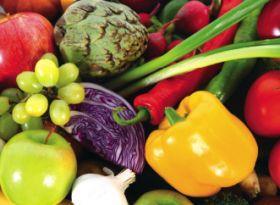
Eating more fruits and vegetables could reduce stroke risk by almost a third, according to an analysis of a combination of studies.
Twenty studies examining a total of 16,981 strokes among 760,629 participants were included in the analysis.
The results showed that overall, the people who ate the most fruits and vegetables were 21 per cent less likely to have a stroke, compared to people who ate the lowest amounts.
The benefits rose along with the amounts of produce consumed. Stroke risk fell by 32 per cent for every 200g per day of fruit people ate, and 11 per cent with every 200g of vegetables.
The researchers found that citrus fruits, leafy vegetables and apples and pears were the specific types of greenery linked to reduced stroke risk.
Dr Yan Qu, of the Qingdao Municipal Hospital and the Medical College of Qingdao University in Qingdao, China, led the analysis.
A stroke occurs when bloodflow to part of the brain is blocked by a clot or a burst blood vessel. Without emergency care, a stroke can lead to severe brain damage or death.
Several studies have looked at the influence of diet on stroke risk. Some have tied eating lots of fruits and vegetables to lowered risk; others have found no link at all.
The effect could be indirect, and eating fruits and vegetables may benefit overall health by reducing blood pressure, cholesterol, weight and other stroke risk factors, Qu said. It’s also possible that specific nutrients in the foods may reduce stroke risk, he added.



